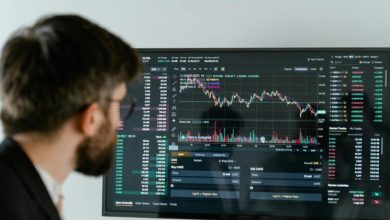Is Now the Right Time to Buy Stocks? What History Tells You About Market Corrections and Bear Markets

Stock markets haven’t had the best start in 2025. Have you noticed how uncertain things feel lately? From rising trade tensions under President Donald Trump’s policies to growing concerns about a possible recession, there’s a lot happening in the background—and it’s shaking investor confidence.
The Nasdaq Composite and the SPX500 Index Today have both recently dropped more than 10% from their peaks, which officially puts them in correction territory. Does this mean a bear market is coming next? And if it is—should investors be worried or see it as a golden opportunity?
What Happens When Markets Fall—And Why It Might Be a Good Thing
First, what exactly is a bear market? It’s when a major stock index—like the S&P 500 or Nasdaq—drops by 20% or more from its most recent high. A 10% drop, like what we’re seeing now, is known as a correction. So, we’re halfway there. But should you panic?
Actually, no. If we look at past market corrections and downturns, they often turned out to be some of the best times to invest—especially for those who think long-term.
Let’s look back at the market crash of 2020, triggered by the global pandemic. Stocks fell fast and hard, but just a few months later, both the S&P 500 and Nasdaq started recovering. Since their bottom in April 2020, both indexes more than doubled in value. That means those who invested during the worst days saw strong annual returns—far higher than average.
And it wasn’t just 2020. When the markets dipped in 2022, it looked rough at first. But from the beginning of 2023 onward, they bounced back again. So while timing the exact bottom is tough, history shows that investing when prices are down can pay off in a big way.
Should You Be “Greedy When Others Are Fearful”?
This famous quote from Warren Buffett has stood the test of time. When others are selling, scared of what’s coming next, that’s often when the best opportunities appear.
Of course, it’s not easy to buy when the market looks uncertain. But investors who stay calm and focused during these periods can often find quality companies at lower prices. That’s the real strategy—finding good businesses and sticking with them, even when headlines are negative.
Is Amazon a Smart Pick During a Market Dip?
One company many investors are watching closely right now is Amazon (AMZN). Its stock is already down around 13% this year, largely due to the broader market conditions. But is that really bad news—or a buying opportunity?
Amazon continues to lead in major industries that are still growing fast. It’s the top e-commerce platform in the U.S. and a global leader in cloud computing through Amazon Web Services (AWS). These two areas—cloud and e-commerce—are the backbone of digital infrastructure today. On top of that, Amazon’s digital advertising business is growing steadily and bringing in strong revenue.
Have you noticed how much talk there is about artificial intelligence (AI) lately? Amazon is part of that too. Through AWS, it offers a range of AI-powered tools and services. As businesses around the world begin to adopt AI, Amazon is already in place to benefit from that growth wave.
What About Valuation? Is Amazon Too Expensive Right Now?
Some investors hesitate because of Amazon’s price. Its forward price-to-earnings (P/E) ratio is around 30, which is higher than the sector average of about 25. But when you consider everything Amazon is involved in—AI, cloud, advertising, pharmacy, e-commerce—it starts to make more sense. You’re not just buying a retailer; you’re buying into the future of multiple industries.
Final Thoughts
Should You Be Watching the Market Closely? Yes—especially if you’re thinking long-term. Markets go up and down. That’s normal. But the key is to stay focused and look for value when others are fearful. If history repeats itself, a bear market in 2025 could turn into a powerful opportunity for those who are ready. And companies like Amazon? They might just be the kind of stock to keep on your radar—whether we enter a bear market or not




